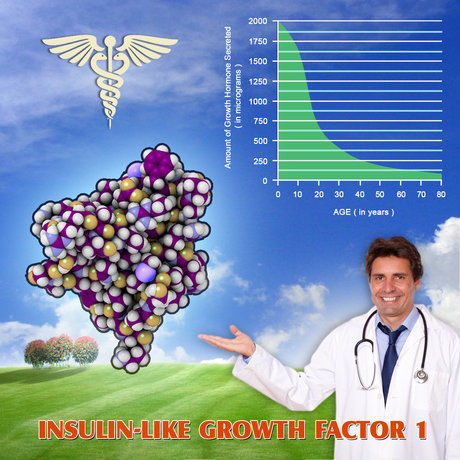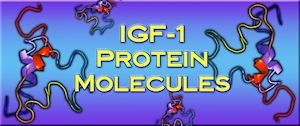Introduction
Hair loss is a concern that affects many American men, impacting their self-esteem and quality of life. While genetics and age are well-known factors, the role of medications, particularly antidepressants, in hair loss is less understood. This article delves into the connection between antidepressants and hair loss in men, offering insights into the mechanisms involved and potential solutions.
The Prevalence of Antidepressant Use
In the United States, the use of antidepressants has been on the rise, with approximately one in eight American men taking these medications. Selective serotonin reuptake inhibitors (SSRIs), serotonin-norepinephrine reuptake inhibitors (SNRIs), and tricyclic antidepressants (TCAs) are among the most commonly prescribed classes. While these drugs can be life-changing for those suffering from depression, anxiety, and other mental health conditions, they can also come with side effects, including hair loss.
Mechanisms of Antidepressant-Induced Hair Loss
The exact mechanisms by which antidepressants may lead to hair loss are not fully understood, but several theories have been proposed. One hypothesis is that these medications can disrupt the normal hair growth cycle, pushing hair follicles into a resting phase prematurely. This can result in increased shedding and, consequently, noticeable hair thinning.
Another theory suggests that antidepressants may affect hormone levels, particularly those related to the thyroid gland. Since thyroid hormones play a crucial role in hair growth, any imbalance can lead to hair loss. Additionally, some antidepressants may increase levels of cortisol, a stress hormone that has been linked to hair loss.
Identifying Antidepressant-Related Hair Loss
Distinguishing between hair loss caused by antidepressants and other forms of hair loss can be challenging. Typically, antidepressant-induced hair loss is characterized by diffuse thinning across the scalp rather than the patterned baldness seen in male pattern baldness. Men may notice increased hair shedding in the shower or on their pillow, and the onset of hair loss may coincide with the start of their antidepressant treatment.
Managing Hair Loss While on Antidepressants
If a man suspects that his hair loss is related to his antidepressant medication, it is crucial to consult with his healthcare provider. The doctor may consider adjusting the dosage, switching to a different antidepressant, or adding a supplementary treatment to mitigate the side effect. It is essential not to stop taking the medication abruptly, as this can lead to a worsening of mental health symptoms.
In some cases, hair loss may be temporary and resolve once the body adjusts to the medication or after discontinuation. However, for those experiencing persistent hair loss, additional treatments such as minoxidil (Rogaine) or finasteride (Propecia) may be recommended. These medications can help stimulate hair growth and slow down hair loss.
The Psychological Impact of Hair Loss
Hair loss can have a significant psychological impact on men, potentially exacerbating existing mental health issues. It is important for men to address these feelings openly with their healthcare providers and consider seeking support from a mental health professional. Support groups and online communities can also provide valuable resources and a sense of solidarity.
Conclusion
The connection between antidepressants and hair loss in American men is a complex issue that requires careful consideration. While not all men will experience this side effect, those who do should seek guidance from their healthcare providers to explore management options. By addressing both the physical and psychological aspects of hair loss, men can work towards maintaining their mental health and well-being while managing this challenging side effect.
Contact Us For A Fast And Professional Response

- Unveiling the Silent Saboteur: The Connection Between Scalp Infections and Hair Loss in American Males [Last Updated On: February 18th, 2025] [Originally Added On: February 18th, 2025]
- Revolutionizing Confidence: A Comprehensive Guide to Medical Wigs for Hair Loss in American Males [Last Updated On: February 20th, 2025] [Originally Added On: February 20th, 2025]
- Chemotherapy-Induced Hair Loss in American Males: Understanding, Coping, and Regrowth Strategies [Last Updated On: March 1st, 2025] [Originally Added On: March 1st, 2025]
- Decrypting the Hidden Layers: Hair Loss as a Latent Medical Dilemma [Last Updated On: March 2nd, 2025] [Originally Added On: March 2nd, 2025]
- Exploring the Impact of Thyroid Disorders on Hair Health: Understanding the Connection, Clinical Symptoms, and Effective Management Strategies [Last Updated On: March 3rd, 2025] [Originally Added On: March 3rd, 2025]
- Advancements in Surgical Hair Loss Treatments for Men [Last Updated On: March 4th, 2025] [Originally Added On: March 4th, 2025]
- Comprehensive Guide to Understanding and Managing Hair Loss in American Men [Last Updated On: March 5th, 2025] [Originally Added On: March 5th, 2025]
- Understanding Pediatric Hair Loss: Causes, Impact, and Treatment Options [Last Updated On: March 6th, 2025] [Originally Added On: March 6th, 2025]
- The Efficacy of Over-the-Counter Hair Loss Treatments: Scientific Evidence and Safety Considerations [Last Updated On: March 7th, 2025] [Originally Added On: March 7th, 2025]
- Embracing Holistic Approaches for Hair Health: A Comprehensive Guide for American Males [Last Updated On: March 8th, 2025] [Originally Added On: March 8th, 2025]
- The Genetic Basis of Male Pattern Baldness: Insights, Treatments, and Prevention Strategies [Last Updated On: March 9th, 2025] [Originally Added On: March 9th, 2025]
- Understanding the Link Between Stress and Hair Loss in American Males: A Comprehensive Medical Insight [Last Updated On: March 12th, 2025] [Originally Added On: March 12th, 2025]
- Hormonal Insights into Male Hair Loss: Causes, Treatments, and Lifestyle Impact [Last Updated On: March 13th, 2025] [Originally Added On: March 13th, 2025]
- Understanding Hair Loss in American Men: Separating Myths from Medical Realities [Last Updated On: March 15th, 2025] [Originally Added On: March 15th, 2025]
- Allergies and Hair Loss: Exploring the Link for American Males [Last Updated On: March 16th, 2025] [Originally Added On: March 16th, 2025]
- Understanding Hair Loss: Causes, Types, and Advanced Treatments for American Males [Last Updated On: March 17th, 2025] [Originally Added On: March 17th, 2025]
- Male Hair Loss: Understanding Genetic, Hormonal, and Lifestyle Risk Factors [Last Updated On: March 18th, 2025] [Originally Added On: March 18th, 2025]
- Topical Treatments for Hair Loss: Efficacy, Application, and Emerging Options [Last Updated On: March 18th, 2025] [Originally Added On: March 18th, 2025]
- Hair Loss in American Men: Psychological Impacts and Holistic Coping Strategies [Last Updated On: March 19th, 2025] [Originally Added On: March 19th, 2025]
- Revolutionizing Hair Loss Treatment: Innovations and Hope for American Males [Last Updated On: March 20th, 2025] [Originally Added On: March 20th, 2025]
- Diabetes and Hair Loss in American Males: Understanding the Link and Managing Risks [Last Updated On: March 21st, 2025] [Originally Added On: March 21st, 2025]
- Monogenic Hair Loss: Genetic Insights and Management for American Males [Last Updated On: March 21st, 2025] [Originally Added On: March 21st, 2025]
- Alopecia Universalis: Understanding, Managing, and Coping for American Males [Last Updated On: March 21st, 2025] [Originally Added On: March 21st, 2025]
- Hair Loss in American Males: A Potential Indicator of Heart Disease Risk [Last Updated On: March 22nd, 2025] [Originally Added On: March 22nd, 2025]
- Effective Hair Loss Treatments for American Men: Medications and Mechanisms [Last Updated On: March 22nd, 2025] [Originally Added On: March 22nd, 2025]
- Drug-Induced Hair Loss in American Males: Causes, Symptoms, and Management Strategies [Last Updated On: March 22nd, 2025] [Originally Added On: March 22nd, 2025]
- Innovative Hair Loss Solutions for American Males: From Stem Cells to 3D Printing [Last Updated On: March 22nd, 2025] [Originally Added On: March 22nd, 2025]
- Hair Follicle Miniaturization: Understanding and Managing Hair Loss in American Males [Last Updated On: March 23rd, 2025] [Originally Added On: March 23rd, 2025]
- Steroids and Hair Loss in American Men: Causes, Risks, and Management Strategies [Last Updated On: March 23rd, 2025] [Originally Added On: March 23rd, 2025]
- Autoimmune Disorders and Hair Loss in American Males: Mechanisms, Conditions, and Treatments [Last Updated On: March 23rd, 2025] [Originally Added On: March 23rd, 2025]
- Male Hair Loss: Causes, Prevention, and Treatment Options for American Men [Last Updated On: March 23rd, 2025] [Originally Added On: March 23rd, 2025]
- Anabolic Steroids and Hair Loss: Mechanisms, Prevalence, and Management in American Males [Last Updated On: March 23rd, 2025] [Originally Added On: March 23rd, 2025]
- Hair Loss in Young American Males: Causes, Impacts, and Treatment Needs [Last Updated On: March 23rd, 2025] [Originally Added On: March 23rd, 2025]
- Telogen Effluvium in American Men: Causes, Symptoms, and Management Strategies [Last Updated On: March 23rd, 2025] [Originally Added On: March 23rd, 2025]
- Understanding Hair Loss: Causes, Treatments, and Hope for American Men [Last Updated On: March 23rd, 2025] [Originally Added On: March 23rd, 2025]
- Aromatherapy for Hair Loss: Benefits, Evidence, and Considerations for American Males [Last Updated On: March 23rd, 2025] [Originally Added On: March 23rd, 2025]
- Medical Hair Loss in Men: Causes, Management, and Prevention Strategies [Last Updated On: March 23rd, 2025] [Originally Added On: March 23rd, 2025]
- Aging Males and Hair Loss: Causes, Impacts, and Management Strategies [Last Updated On: March 24th, 2025] [Originally Added On: March 24th, 2025]
- Anemia and Hair Loss in American Males: Causes, Diagnosis, and Management Strategies [Last Updated On: March 24th, 2025] [Originally Added On: March 24th, 2025]
- Guide to Hair Loss Surgery Techniques for American Males [Last Updated On: March 24th, 2025] [Originally Added On: March 24th, 2025]
- Hair Cloning: A Breakthrough in Hair Loss Treatment for American Males [Last Updated On: March 24th, 2025] [Originally Added On: March 24th, 2025]
- Innovative Strategies to Mitigate Chemotherapy-Induced Hair Loss in American Males [Last Updated On: March 25th, 2025] [Originally Added On: March 25th, 2025]
- Vitamin Deficiencies and Hair Loss in American Males: Causes and Solutions [Last Updated On: March 25th, 2025] [Originally Added On: March 25th, 2025]
- Hair Extensions and Permanent Hair Loss: Risks for American Males [Last Updated On: March 25th, 2025] [Originally Added On: March 25th, 2025]
- Post-COVID Hair Loss in American Males: Causes, Symptoms, and Management Strategies [Last Updated On: March 26th, 2025] [Originally Added On: March 26th, 2025]
- LLLT: A Non-Invasive Hair Loss Solution for American Men [Last Updated On: March 26th, 2025] [Originally Added On: March 26th, 2025]
- American Men Triumph Over Hair Loss: Success Stories and Effective Treatments [Last Updated On: March 27th, 2025] [Originally Added On: March 27th, 2025]
- AI Revolutionizes Male Pattern Baldness Diagnosis and Treatment [Last Updated On: March 27th, 2025] [Originally Added On: March 27th, 2025]
- Androgenetic Alopecia: Advances in Treatment and Understanding Mechanisms [Last Updated On: March 27th, 2025] [Originally Added On: March 27th, 2025]
- Advanced Diagnostic Technologies for Hair Loss in American Men: A Comprehensive Overview [Last Updated On: March 27th, 2025] [Originally Added On: March 27th, 2025]
- Thyroid Disorders and Hair Loss in American Males: Causes and Management [Last Updated On: March 27th, 2025] [Originally Added On: March 27th, 2025]
- Immune System Disorders and Hair Loss in American Males: Mechanisms, Symptoms, and Treatments [Last Updated On: March 27th, 2025] [Originally Added On: March 27th, 2025]
- Managing Hair Loss: Medical Insights and Societal Perceptions for American Men [Last Updated On: March 27th, 2025] [Originally Added On: March 27th, 2025]
- Shock Loss After Hair Transplant: Causes, Timeline, and Management for American Males [Last Updated On: March 27th, 2025] [Originally Added On: March 27th, 2025]
- Hair Dyes and Hair Loss in American Males: Investigating the Correlation [Last Updated On: March 27th, 2025] [Originally Added On: March 27th, 2025]
- Postpartum Hair Loss: Causes, Effects, and Support Strategies for New Mothers [Last Updated On: March 27th, 2025] [Originally Added On: March 27th, 2025]
- PCOS-Like Symptoms and Hair Loss in American Males: Hormonal Insights [Last Updated On: March 27th, 2025] [Originally Added On: March 27th, 2025]
- PRP Therapy: A Promising Solution for Hair Loss in American Men [Last Updated On: March 28th, 2025] [Originally Added On: March 28th, 2025]
- High Blood Pressure and Hair Loss: Understanding the Indirect Links in American Males [Last Updated On: March 29th, 2025] [Originally Added On: March 29th, 2025]
- Androgenetic Alopecia: Genetic Insights and Emerging Treatments for Male Pattern Baldness [Last Updated On: March 29th, 2025] [Originally Added On: March 29th, 2025]
- Scalp Psoriasis in American Males: Impacts, Hair Loss, and Management Strategies [Last Updated On: March 29th, 2025] [Originally Added On: March 29th, 2025]
- Trichotillomania in American Males: Understanding, Impact, and Treatment Options [Last Updated On: March 30th, 2025] [Originally Added On: March 30th, 2025]
- Understanding and Treating Hair Loss in Men: A Guide for Physicians [Last Updated On: March 31st, 2025] [Originally Added On: March 31st, 2025]

















